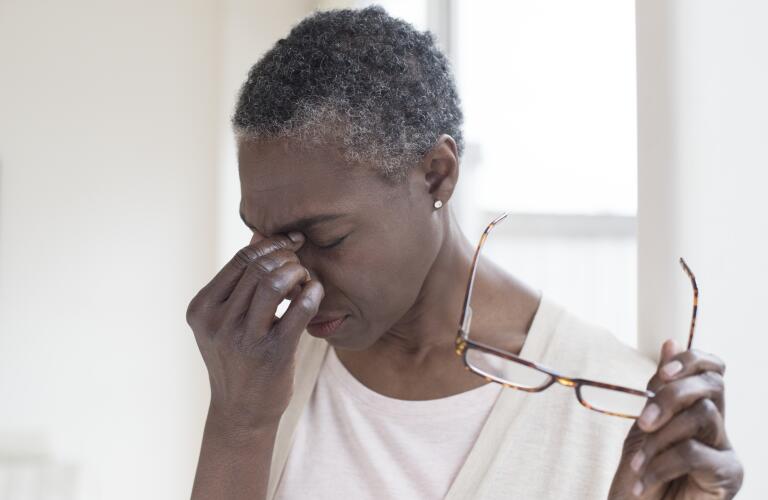
Shingles can cause more than just a painful rash. Sometimes the pain continues after the rash goes away. Other problems can occur when shingles involves the eye, face or ear. Problems also can develop when it involves infections of the skin or the brain’s lining. Learn about five possible complications of shingles.
PHN is the most common complication of shingles. The older you are when you get shingles, the more likely you are to have this problem. With PHN, pain can last for months and sometimes years. The pain occurs in the same area as the rash, but it persists after the rash has gone away. The pain may feel like burning or stabbing. PHN also can cause very bad itching. It can make your skin so sensitive that even a light touch hurts.
Getting the shingles vaccine can help prevent PHN. The vaccine makes you about half as likely to get shingles as people who aren't vaccinated. It also lowers your risk of getting PHN after shingles by more than 60%. If you do get PHN, your doctor can prescribe medicine to ease the pain. Options include painkillers, anti-seizure drugs, antidepressants, and creams to run on your skin.
Although a virus causes shingles, sometimes a bacterial infection develops as a complication. That's because the skin rash of shingles forms blisters that rupture. An infection can occur if bacteria get into the ruptured blisters. One way this can happen is by scratching the blisters. Your doctor can treat a bacterial infection with an antibiotic. This will help you heal and prevent scarring.
A shingles infection that involves the eye can cause blurred vision or even loss of vision. Early symptoms are pain on one side of the face and blisters on the tip of the nose. Eye symptoms may include:
- Decreased vision
- Eye pain or discomfort
- Redness of the eye
- Swelling around the eye or in the eyelid
- Sensitivity to light
You can prevent complications involving the eye. The first step is to see an eye doctor when you first have symptoms. The doctor can prescribe antiviral medication that can help. If you have a very bad case, you might need to be treated in a hospital. Then you could get an antiviral drug by IV, which puts it right into your blood.
Shingles can attack the facial nerve. This problem is called Ramsay Hunt syndrome. Symptoms include:
- Rash on one side of the face
- Severe ear pain
- Weakness of the facial muscles on one side, causing drooping
Other symptoms may include:
- Dizziness
- Hearing loss
- Loss of taste
- Ringing in the ear
For facial complications, your doctor may treat you with more than one medicine. Often, doctors prescribe an antiviral drug and a steroid to help avoid hearing loss and facial weakness. You also might take a tranquilizer to treat dizziness. In some cases, hearing loss and facial weakness do not go away. However, most people recover without permanent damage.
Shingles of the brain is called herpes zoster encephalitis. It is a rare but serious complication. Besides the shingles rash, other symptoms start quickly. They include headaches, vomiting, fever and confusion. Shingles encephalitis is dangerous because it can cause seizures and swelling of the brain.
Shingles encephalitis requires treatment in a hospital. There, doctors can give antiviral drugs through an IV, as well as other drugs to control seizures and swelling. Giving IV drugs is a very fast way to get the drug into your system. With prompt treatment, shingles encephalitis clears up in about three weeks.



